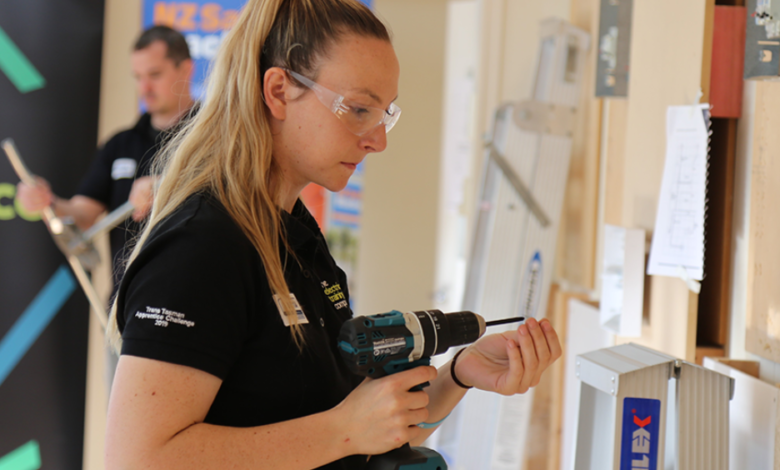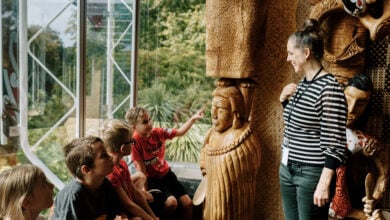Trading places: Career path guidance for teens

Careers may look different in a post-pandemic world. So how do you assist your students to build appropriate pathways for their future and maintain an informed, effective careers team?
An active, engaged careers department can help open young eyes to new worlds of opportunities and help steer students in the direction of their dream job. When accessing careers information, building links with employers and industries, and providing advice to students and whanau is delivered by enthusiastic, informed staff, the outcomes can be extraordinary.
What’s new for ‘22?
Vocational pathways and apprenticeships are on the rise. The recent promotional push – you may have seen the TV adverts featuring the perplexed financial services-employed dad stressing about his son’s choice to become a tradie – is encouraging growth in the trades, with demand higher than ever in construction and related areas.
Reform of Vocational Education (RoVE) is underway, as many readers will be aware. This led to the formation of six Workforce Development Councils in October 2021, covering different industries, with Ohu Mahi being the overarching brand for these. The Ohu Mahi website has information on each WDC and the industries they represent: ohumahi.nz
The Tertiary Education Commission keeps an up-to-date directory of the Transitional Industry Training Organisations (TITOs) which with schools and students can engage when considering apprenticeship options. From boat building to beauty therapy, seafood processing to sports turf management, students, and especially parents, may be amazed to discover the many options beyond the traditional mechanical or electrical engineering apprenticeships of old. To become a New Zealand Apprentice, students must be over 16, but there is no upper age limit. Each industry has different entry requirements, so check with the relevant industry training organisation (ITO) to find out more. See: tec.govt.nz
After almost two years of virtual meetings and online seminars, education and industry representatives will be looking forward to meeting again for real. Now, they can look forward to the return of the Careers Expo across Aotearoa this autumn/winter.
Starting out in Wellington on 13-14 May, the event will move to Christchurch (26-28 May) before being held in Dunedin on June 2. The expo will travel to Hamilton for June 12-13, Palmerston North on June 17 before heading to Auckland on June 30-July 2.
The popular expo is opportunity for students to talk face to face with New Zealand’s widest range of employers, industry, government departments, and training providers, all in one place. As well as the event, this free expo provides teachers with valuable resources to educate and inform their students on vocational pathways, including online content and study resources.
‘Help ensure your students enter the workforce prepared,’ say organisers. To careers educators, from school leaders and whanau, this, beyond all else, remains the simple ask.
Resources also available at: careers.govt.nz/plan-your-career and nzqa.govt.nz , which has a 15-page downloadable ‘Where to from School’ pdf guide.
Industry Perspectives
When guiding students along diverse industry pathways, The Electrical Training Company’s (Etco) chief executive Jeremy Sole recommends that schools focus on exposure: “There are so many different pathway options available now. The vocational route is a very viable option and there is massive demand and opportunity in the trades, including the electrical sector.”
He says schools should capitalise on these opportunities for students by exposing them to the trades and making sure they have access to relevant prerequisites.
“Remind them they won’t have a student loan with a trade, because they will earn while they learn. Ensure they are taking the right subjects required to enable them to go straight into an apprenticeship.”
Jeremy’s team works closely with schools throughout NZ and regularly attends CATE conferences. He tells us, “Our apprentice mentors around the country enjoy connecting with students and career advisors, and sharing with them the opportunities an electrical trade career offers.”
The goal is to provide wrap-around support to mentor a student apprentice right through, making it more likely they will succeed and achieve their qualification. School groups can visit training centres for interactive experiences to get a taste of the electrical sector, for instance, and learn more about what is involved.
“I am excited about the opportunities with the reforms in vocational education that are happening. They will enable us to provide all students with the excellent service, expertise and care they need.
“Once students have a trade and their qualification, they can always travel too – so, by making vocational education more attractive to students, it opens other possibilities up for them.
“Often, a student might travel once they have an initial qualification under their belt, and then come home to further study or gain higher qualifications.”









